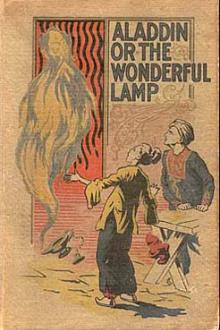Berlintoxication - Stephanie Laimer-Read (moboreader TXT) 📗

- Author: Stephanie Laimer-Read
Book online «Berlintoxication - Stephanie Laimer-Read (moboreader TXT) 📗». Author Stephanie Laimer-Read
CHAPTER 1
In which our hero receives a bad emanation, a good supper and an odd suggestion
The clouds burst open just before the carriage reached Brandenburg Gate. Dark rain beat down on the street named Unter den Linden, drenching the people and carriage horses, splashing on the stones and flooding the gutters.
Walter Busch looked out of the grubby coach window, at the figures in the dusk, at the villas and the dim lights shimmering in the dark.
Unter den Linden – ‘under the lime trees’ - was one of the most impressive areas of Berlin, a splendid boulevard that led from the Stadtschloss, the Kaiser’s palace, to Thiergarten, the zoo.
The carriage went past fancy shops and expensive restaurants, past advertising columns, past placards for chocolate, cigarettes and beer. Outside people swaggered, stumbled and showed off; they shuffled and hurried, bumping into each other, stepping in puddles.
The petroleum lanterns and the few recently installed gas lamps were lit already. Newspaper vendors shouted out their news. Other trams and horse carriages passed, splashing water over people’s shoes.
Ghosts went past, transparent and silent, whitish-grey shapes in the dark. Everybody knew they existed: pregnant women who had drowned themselves or died during abortions, morphine addicts who had overdosed, starved beggars. Some people could see them more easily than others, but everyone knew that they were there.
A Friday evening in Berlin, dark, crowded, busy November Berlin.
Berlin, Berlin. The capital of Prussia, a state that was well-known for its army, its discipline, its splendid uniforms. Berlin, the capital of the Deutsches Reich
, the German Empire, since 1871.
Berlin, city with one million inhabitants; city of industry and art, science and architecture, sewage and steam and gas. City of writers and doctors, workers and beggars, pageants and funerals, slang and splendour and megalomania. City of palaces and slums and mansions.
Home to so many people: people who starved and people who celebrated, people who rioted, people who marched, people who worked every day in their lives without complaining. Soldiers and policemen, thieves and murderers, sometimes all in one.
Berlin, Berlin. The city where Walter Busch had been born and bred and where he would have expected to die had he been inclined to think about his own death, which he wasn’t.
Walter Busch - bank clerk in Berlin-Friedrichstadt, 28 years old, respectable, bespectacled and reasonably ambitious – led a proper and decent life. He went to work, and he went home. He socialised as much as was appropriate. He kept his head down and his eyes half open and his mouth shut because that was wise.
He read the newspapers sporadically because it was good to be able to make conversation about what went on in the world. There were interesting things in the papers - pleasant stuff that made you feel good, curious news that gave you a nice thrill, things that were shocking and could only be spoken about in whispers. Yes, he kept himself informed. He had read about what was going on.
Earlier this year, a certain Berta Benz had driven an automobile from Pforzheim to Mannheim, both in the southwest of Germany, covering an amazing 40 miles. Slavery had been abolished in Brazil. A madman commonly referred to as Jack the Ripper was on the loose in London, stabbing and mutilating women.
Walter Busch read the papers conscientiously and took it all in with a mixture of shock and fascination. The things people were up to... the things science could do nowadays...
However, he did not usually bother to ruminate about such matters. It was much easier to concentrate on his flat, on his job, on getting on in Berlin - and it was not as if there was not enough happening in his home town.
The new emperor, Kaiser Wigbert II, had been in power for five months now. His two predecessors, Wigbert I and Friedrich II, had died within four months from each other and been mourned appropriately. Friedrich II had been dying of throat cancer even when he got to the throne; he had been unable to speak and died after 99 days.
People had held speeches, worn black armbands, listened to the hymns. Then life had gone on, and the new Kaiser had come to the throne.
And now, in November 1888, he ruled proudly and happily: Friedrich Wigbert II Albrecht of Prussia, famous for an impressively curled grey moustache and highly fanciful uniforms in all colours, uniforms that wouldn’t camouflage anything outside a tropical garden.
However, the best-known fact about the Kaiser was his predilection for even more fanciful, yes, wigs, which, considering his name, was an improbable coincidence, but there it was.
Anyway, he loved his wigs. Some were curly, some wavy and some straight; some were white, some black, some red streaked with silver; some were larger than his head, some were used to store money or drinks; sometimes they had beads and jewels woven into them. There were a few people who found them odd, but then Wigbert was the Kaiser, so he couldn’t be wrong.
The Kaiser ruled because it was God’s will. The Kaiser with his serious, beautiful wife Alberta Ernestine, known as Bela for reasons unknown to the public. With three sons who already looked like soldiers. With a daughter who, one day, would be a beautiful woman, all a princess could be, and with his trustworthy supporter Kanzler Oskar Dagobert von Blistert. The Chancellor had helped to found the German Reich; he had created the social security system; he fought valiantly to eliminate socialism and similarly dubitable tendencies. And he also had an impressive moustache, but a bushy rather than a curly one.
The Iron Chancellor, the Soldier Chancellor, epitome of the military spirit, sometimes disapproved of Wigbert’s showing-off but remained adequately loyal.
Walter Busch didn’t feel particularly intensely about any of these things and people. He was dispassionately patriotic, proud and loyal and obedient without actually thinking about it. It was part of him; it was what you did. He had been in the army when he had to because that was what you did. All men in Prussia had to serve in the army, and it was supposed to be honourable. Walter had found it unpleasant, but he had done it, and in hindsight he was proud.
When the two previous Kaisers had died, of course he had worn a black armband because it was what you did. And of course he had genuinely mourned because that was also what you did. But now? Now those things were over, and his life was going well, and...
I don’t care.
No
(pang of guilt). I do care about the city and about the country, and sometimes I see that some things are quite bad, and I wish I could make everything a bit better. But there’s nothing I can do about anything. What do I know about politics or governments or the law? What should I do to make people better or to make the world friendlier? And terrible though some things are I’m fine. I’m happy and I’ve got a good job.
I’ve got enough money to live on. I’m healthy. And I’m going to see my fiancée.
***
The carriage went through the district of Friedrichstadt with its shops, banks and government offices. It went past the Thiergarten. It went down Kurfürstendamm, the other large boulevard of the city.
The horse plodded on through the rain, its mane and tail hanging limply, its coat glistening with precipitation. The passengers spoke softly, and the raindrops pattered on the roof.
Walter left the carriage in the Wilmersdorf district and walked on down Königsallee where his fiancée’s family lived. The rain was falling a little less heavily now. Walter walked on, head bowed and umbrella raised, but smiling as he got closer to the mansion.
And then a feeling hit him, a sudden stab of despair and rage that was so intense it made him wince. He stopped dead and gasped.
Who had it come from?
Walter looked around trying to make out a figure that looked as if it were so desperate, but the people around him looked just the way people looked: busy, going somewhere.
Who had that been?
He would probably never find out.
Saying that Walter knew how someone else felt wasn’t a figure of speech. He didn’t guess their feelings or empathise with them; he actually knew. Their feelings hit him and flooded his brain, and sometimes he couldn’t even tell if they were his own feelings or somebody else’s.
It had taken him quite a while to work out that most other people couldn’t do it. When he was a child he didn’t realise that other people didn’t just look at somebody and heard (or saw? or felt? He couldn’t explain it) their thoughts, like he did.
There had been misunderstandings and embarrassing moments galore, until Walter realised that this was quite a special thing and he had best not let anyone find out.
His parents had (after persistent questioning) admitted that yes, he had a sort of supernatural ability, and it was nothing to be ashamed of, but could he please pretend it wasn’t the case?
He could. If he shut down deliberately, he could just about ignore the thoughts that whirled around him all the time. Some people thought he was reserved and unemotional because he was quiet – but really he was only busy not letting on that he knew what they thought. The things people worried about! The problems they had! The joy and fear and sadness that radiated from them, washing right over him if he didn’t concentrate!
If he was in a room full of people, their feelings came flooding him from all sides. Sometimes he needed all his energy to talk and smile. He would much rather shout, ‘Shut the hell up!’, but of course you couldn’t do that.
He could probably have made more of it, he knew that. He could have been a businessman who knew his opponents’ next move. He could have been a spy or a great lover. Only he wasn’t like that, and it would have been so difficult anyway. Yes, all right. Sometimes he used his ability in his job or with acquaintances: to know what a customer wanted, to find the right words, to avoid touching any sensitive issues. But he didn’t do it regularly because that would be bad manners.
No, no, much better to suppress the Ability, to forget about it, to pretend it didn’t exist. Walter could do that, and he did.
He managed to shake off the feeling. No, he wouldn’t find out who that emanation had come from, and if he did, what would that mean? It wasn’t as if he could have helped the person, was it?
Of course these things happened to people; everybody knew that there were people with mystical and magical powers. But why did this thing have to happen to him? Why shouldn’t it happen to, well, those people in the slums who were capable of using magic out of despair or malice?
Like Harfenjule, Jule with the harp, the blind woman who was always roaming the streets. Many people assumed that she could see the future, but nobody would admit it. And who knew what happened in the dirty quarters, in those places no respectable person would go to? Yes, he could imagine those people having magical powers. He could imagine it for the wealthy and clever people, professors and generals, those who were wiser than him and knew how to use their





Comments (0)